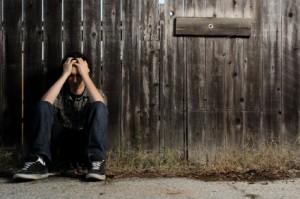People often fail to receive treatment for depression because they fail to recognize the signs of depression. Some think that they are simply feeling “down” or “blue” and that if they wait things out, these negative feelings will go away. Others assume that their agitation and irritation stem solely from dealing with a bad situation day in and day out rather than from depression. There are signs that people can heed when trying to decide if they have depression; anyone who thinks he or she exhibits some of these signs should seek medical care in a timely fashion.
General Signs of Depression
While different types of depression exist, so do general signs and symptoms that are typical of most types of depression. Some of these signs are physical and may be noticed by the depression sufferer and/or the person’s loved ones and acquaintances. Other signs of depression are less obvious for the friend or loved one to see but will be more apparent to the depression sufferer. For example, only an individual can know if he or she is feeling useless, worthless, hopeless, or irrationally guilty.
If a persons experiences some of these signs for at least two weeks he or she may suffer from depression. Not every person with depression will have all of the symptoms. The symptoms can vary depending on the person.
- Feelings of uselessness, worthlessness or guilt
- Feelings of hopelessness
- Fatigue
- Restlessness or the opposite, which is slowness or lack of energy
- Lack of concentration and/or memory issues
- Feelings of irritation or agitation
- Lack of interest in normally pleasurable activities including sex
- Withdrawal from social interactions with family and friends
- Changes in sleep patterns – sleeping more or less than normal
- Feeling tired
- Thoughts of suicide or self-harming behavior or risks
- Weight loss or gain
Signs of Depression in Men
There are some signs of depression that appear more frequently – or at least to a greater degree – in men than women. While increased irritation and aggression are signs that manifest themselves in most depression victims, men are often most keenly affected by these characteristics due to their higher levels of testosterone. Men who are depressed are more likely to engage in risky behavior and alcohol abuse, and are more likely to suffer from sexual side effects. For more signs of depression in men, click here.
 Signs of Depression in Women
Signs of Depression in Women
Women often exhibit the emotional signs most people think of when they think of depression such as crying and overwhelming sadness. They are also more likely to attempt suicide than are men, although men are more likely to succeed in their suicide attempts. Women are more likely to experience seasonal depression and a woman’s depression often lasts longer in women than in men. For more signs of depression in women, click here.
Signs of Depression in Children
Depression in children often manifests itself in a withdrawal from friends and family members and altered approaches to once pleasant activities. Sleeping schedules, play times, and interaction with their peers may all change, and vocal outbursts and temper tantrums may increase in frequency.
Signs of Depression in Teenagers
Detecting depression in teenagers can be difficult since it can masquerade as simple teenage rebellion. Teens suffering from this condition may exhibit an increase in alcohol abuse, promiscuity, and skipping school. Grades and social interaction may drop and teens with depression may exhibit an inability or difficulty with making decisions. For more information on teenage depression, click here.
Signs of Depression in the Elderly
Depression in the elderly is also difficult to diagnose as the signs are often explained away as side effects of aging or of medication. The elderly who are depressed often experience an increase in memory loss and a decrease in mobility as well as an increase in the likelihood of attempting suicide. Click here for more information about depression in the elderly.
Risk Factors and Causes of Depression
Suffering through a traumatic event or a major life change can increase the odds of getting depression, as can being subjected to abuse and personal conflict. Genetics can also increase the risk of depression, as can chronic pain that is the result of recurring illnesses as well as medication. Death and loss can also cause one to contract depression.
Treatment Options for Common Types Depression
Clinical or Major Depression is the type of depression most commonly associated with the term and is treated with a combination of antidepressants and psychotherapy.
Bipolar disorder is treated the same except that patients often have to take drugs that deal with potential hallucinations and psychosis.
Psychotic depression has the hallucinations that severe bipolar patients have yet often require hospitalization due to their severity.
Seasonal Affective Disorder occurs only during the fall and/or summer months and light therapy is usually prescribed.
Postpartum Depression occurs after a woman has given birth and the usual treatment recommended is therapy and/or antidepressants.
Why Seek Help for Depression?
Untreated depression can lead to a decrease in the quality of a patient’s private and personal lives as well as, in extreme cases, death by suicide. Numerous depression treatment options are available, and those interested in them should make an appointment with a physician that will be able to diagnose them and give them the medical and mental assistance that they need.
Related Posts




